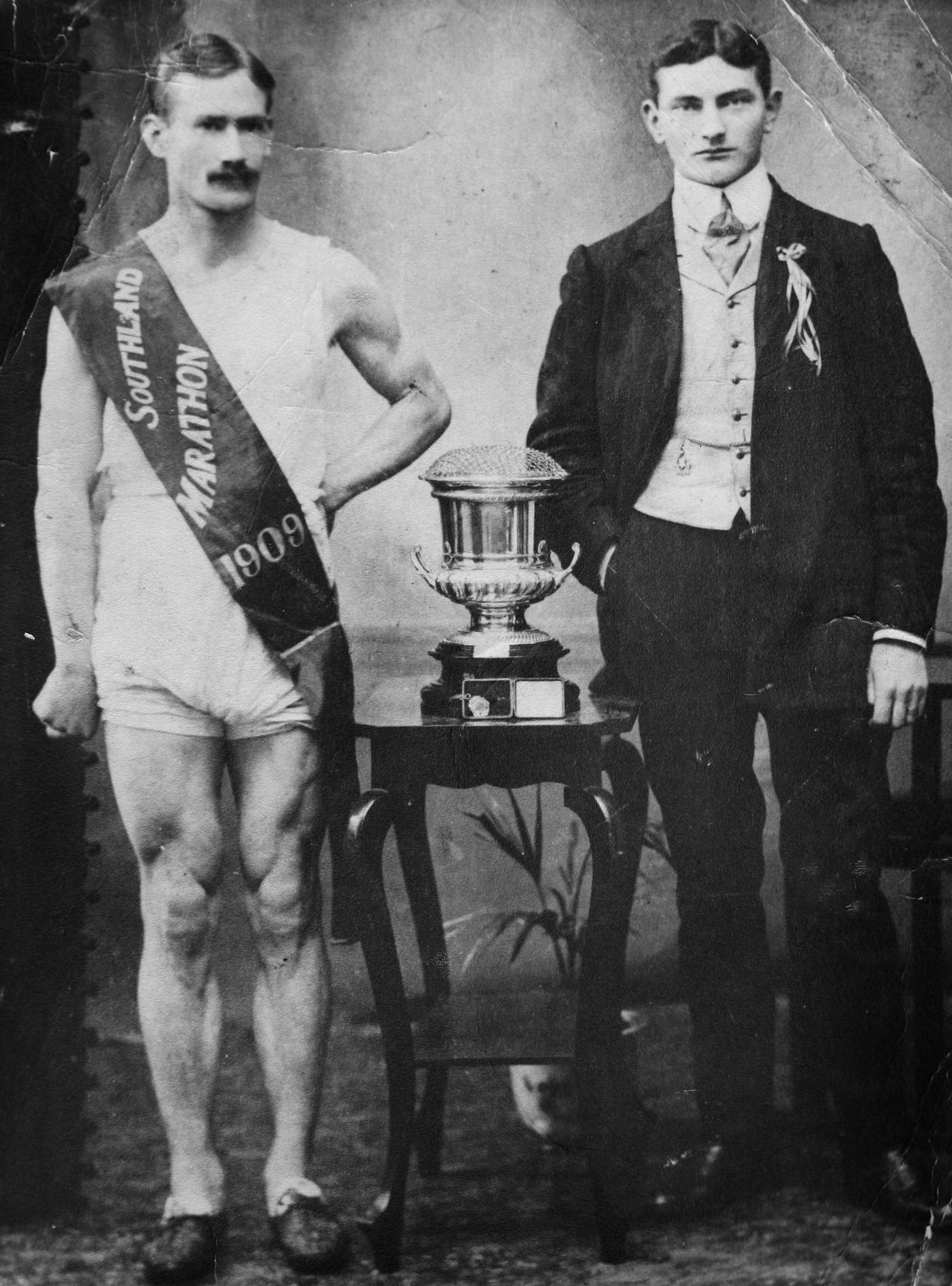Magic Moment: When the marathon winner stopped for two nips of brandy
While 3:22.30 is not a flash time it should be put in context. This was the first time the now-accepted marathon distance had been run in New Zealand, or the Southern Hemisphere for that matter.
Southland athletics has produced many magical moments so as part of a Tribune series we are recalling some of them. Today head back 114 years when the first marathon in the Southern Hemisphere was held in Southland.
A question for athletics trivia buffs; what and where was New Zealand’s first fill marathon. If you said Riverton to Invercargill in 1909 you’d be right.
Now for the hard one, who won and what was the time. If you said David Stewart in 3 hours, 22 min, 30, you obviously spend too much time rummaging around old archives reading running history. But you’d be right.
While 3:22.30 is not a flash time it should be put it in context. This was the first time the now accepted marathon distance had been run in New Zealand (or the Southern Hemisphere for that matter) and only the second time in the world. So the 13 starters were really setting out in the unknown, which may explain why only 7 finished.
And perhaps the time would have been faster if the winner and second place getter had not stopped for a couple of nips of brandy at Underwood. Nor did conditions help.
The road was rough gravel and where it wasn’t gravel it was mud. Except the mud was frozen (the race being in July and Southland in July is usually freezing) so runners found staying on their feet a problem at times. In the circumstances 3.22 was a reasonable achievement.
Even back then commercialism was not to be denied. The crowd at the Rugby Park finish line loudly applauded the first runner through the gate, only to find an enterprising drapery company had paid someone to run past with a placard on his back advertising the winter sale. He had apparently joined the race just around the corner.
According to reports of the time, the real winner entered the ground a few minutes later to genuine applause.
Whether Mr. Stewart or any other entrant wanted to repeat the experience we will never know. There was little chance of back-to-back wins as the event wasn’t staged again until 1953. This time there were 2 entrants and the winning time 3:47.15.
While there was a 44-year gap between first and second running, the Southland Marathon has been a feature of the running calendar ever since, albeit with a few changes of course – as well as Riverton to Invercargill, city roads and the walkway from Stead St wharf have been marathon courses in recent times.
The original trophy won by Stewart in 1909 is still awarded to the Southland Marathon winner. Current holder is Craig Iversen.
Race record is held by John Campbell who ran 2:12.20 in 1985, a time that qualified him for the Seoul Olympics and Edinburgh Commonwealth Games.
READ MORE:





I can still remember the radio station doing live updates on John Campbells run as he neared Invercargill and it became obvious it was going to be a record setting run back in 85. I don't remember the commentator but suspect it may have been to person from Mataura who did the commentating for cycling and wood chopping. Whoever it was he made it sound like it was the greatest ever run in the history of mankind.
In 2009 we had a young gap year student from the UK who thought it would be something to write home about by doing the 100th anniversary one. Two weeks before he started training and his first run was 15 kms to Oreti Beach. Then he was to sore to run for a few days but he decided to give it a go.
We took him to the start at the Riverton Holiday Park and I said get into a pace you think you can hold out. Next time we saw him was with the leading group going past the Riverton racecourse with a big smile on his face. The confidence of youth carried him to Lorneville where he was shattered but he gutzed it out and walked and staggered to Surrey Park with a time of 4 hour and seven minutes.
He got a medal and also got to hold the Ranfurly shield which was on display up there on the day.